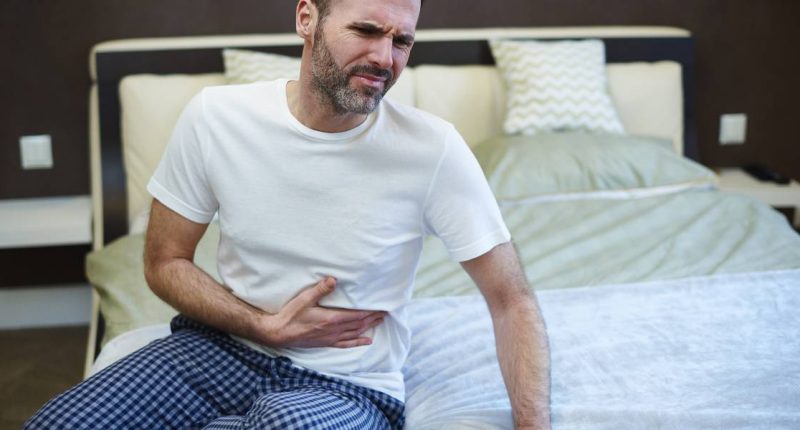The number of norovirus cases in England are on the rise this winter compared to last year, latest health data has shown.
NHS England has reported that 350 people were in hospital with diarrhoea and vomiting symptoms every day last week, compared with 126 in the same week last year.
Otherwise known as the ‘winter vomiting bug’, norovirus is a stomach bug that causes sickness and diarrhoea.
- NHS data deal sparks concerns of data misuse
- New NHS scheme to reduce hospital admissions by tracking kettles and fridges
- Artificial Pancreas: Hybrid closed-loop system gets NHS green light
The virus is highly contagious and can hospitalise some individuals, but most people tend to bounce back in a few days.
Symptoms of norovirus include sudden, projectile vomiting and diarrhoea, stomach pains, high temperature and aching limbs.
It is usually caught from touching contaminated surfaces or objects and then your mouth, as well as being in close contact with – or eating food prepared or handled by – someone infected.
To stop the spread of the virus, people are advised to regularly wash their hands with soap and water.
New data from NHS England also highlights a rise in other viruses that are more contagious in winter, such as COVID-19, respiratory syncytial virus (RSV) and flu.
Professor Sir Stephen Powis, NHS National Medical Director, said: “We all know somebody who has had some kind of nasty winter virus in the last few weeks and today’s data shows this is starting to trickle through to hospital admissions, with a much higher volume of norovirus cases compared to last year, and the continued impact of infections like flu and RSV in children capacity – all likely to be exacerbated by this week’s cold weather.
- Fake Ozempic: weight-loss drug hospitalises people in Austria
- Mediterranean diet and keeping active could reduce risk of hospital-associated disability in older people
- Females taken to hospital by a man are less at risk of dying from a heart attack
“Even before we entered December, the demand on hospitals and staff was high.
“As ever, the public can play their part by using services in the usual way – by calling 999 in an emergency and using NHS 111 for other health conditions – and by getting their COVID and flu jabs if eligible.”
Amy Douglas, Norovirus Epidemiologist at UKHSA, stated: “As norovirus activity increases, it’s important we take steps to try and stop it spreading.
“If you or a family member have been sick with norovirus, you should avoid visiting hospitals and care homes, and not return to work or school, until 48 hours after your symptoms have stopped.”
She added: “If you do catch it, make sure to drink plenty of fluids to avoid dehydration which can result in hospitalisation, particularly for the most vulnerable.”





